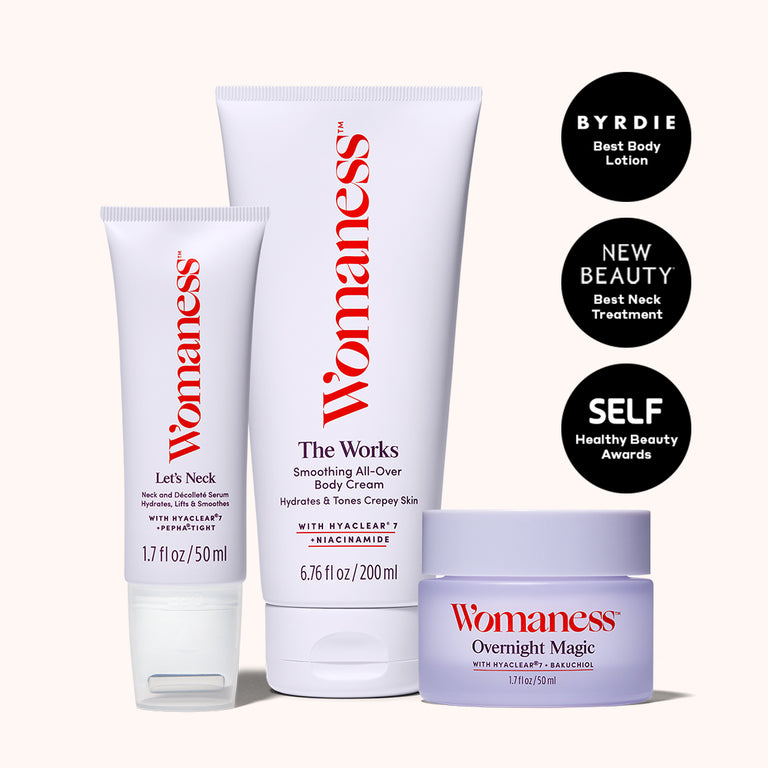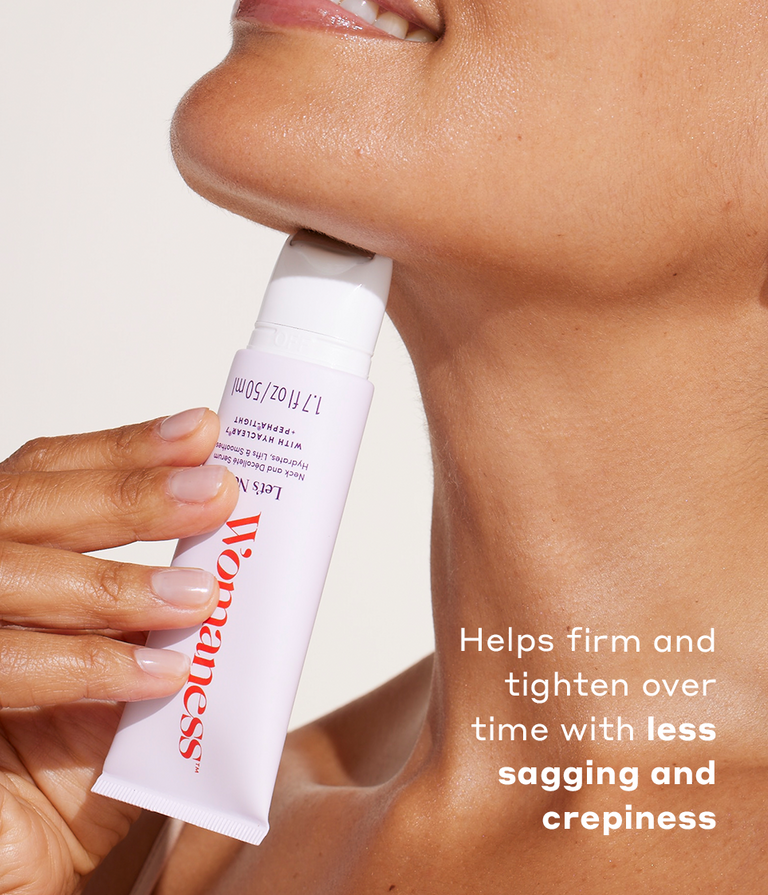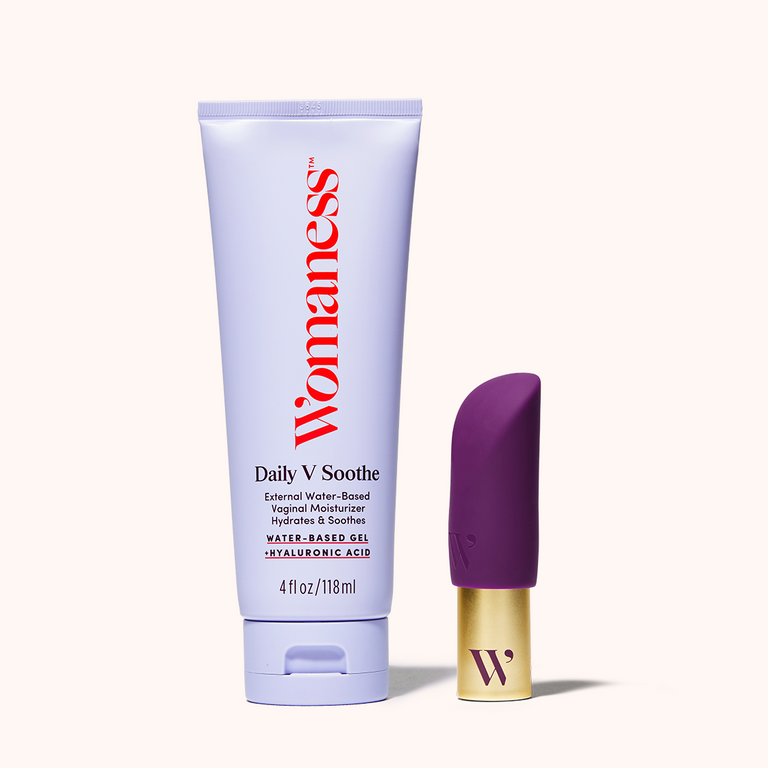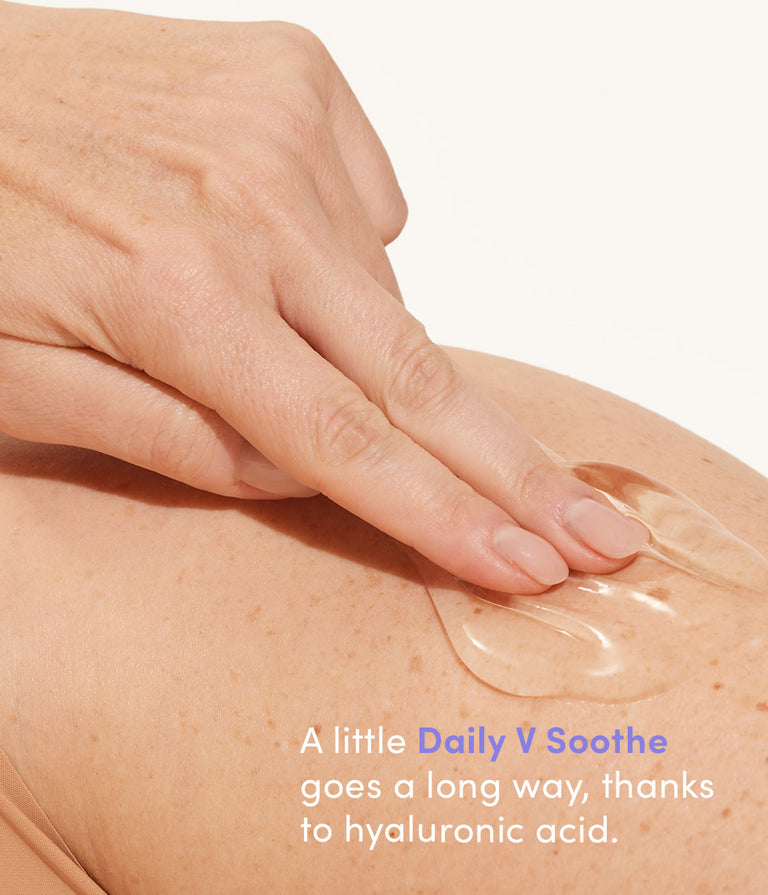By Womaness Editors 4-Minute Read

“If we're lucky to live long enough, we will all go into menopause,” Dr. Somi Javaid recently told our private Facebook Group, The After Party. “There should be no stigma and shame—and we’ll eliminate that by discussing these topics and normalizing them.” The founder and Chief Medical Officer of HerMD joined us for our monthly “Taking Questions” series with answers for sex, skin, and sleep in menopause, as well as member’s submitted questions about hormone testing, thinning hair, and more. We know you’ll come away from the discussion with a renewed sense of advocating for your health, finding a menopause-trained provider who will listen—and helping change the menopause conversation by sharing your experience with the women in your life.
For the full interview, watch below. Have questions of your own? Look for the next “Taking Questions” session with a menopause expert from our network by joining us at The After Party.
Highlights & Tips from Dr. Javaid
SEXUAL HEALTH: BE YOUR OWN BEST ADVOCATE
“Ask questions. That is the number one thing. You want to go to a provider that's going to listen to you and is knowledgeable… You need menopause-trained providers. You need a provider who specializes in sexual health. And if you can't find them, talk to your girlfriends. Talk to someone who's been through it. Don't be afraid.… the more we share information and experiences, we take away that stigma, taboo, and isolation women feel. Talk about it, talk about it, talk about it.”
“Do your homework. There's national organizations like the North American Menopause Society (NAMS) and the International Society for the Study of Women's Sexual Health (ISSWSH), a conglomerate of sexual health providers like myself who've done additional training. They can help you find providers who really cater to the areas of sexual healthcare and menopause healthcare for women.”
“I’m a big proponent of vitamin C as it prevents a lot of damage during the day, especially with thin skin"
SKIN: “MOISTURIZE, MOISTURIZE, MOISTURIZE!”
“Estrogen—the ‘fountain of youth’ hormone—pulls water with it. That’s why our skin (and joints) feels more supple when we have estrogen. I tell people ‘moisturize, moisturize, moisturize!’ Your face, your hands, vagina, your external genitalia…it all is skin. It needs moisture.”
“I’m a big proponent of vitamin C as it prevents a lot of damage during the day, especially with thin skin, which is more prone to damage. Also hydration—drinking water—and sunscreen for preventing evaporation and dehydration, too. We need to keep the water that we have in.”
SLEEP: IT’S COMPLICATED (BUT YOU CAN GET THERE)
“Sleep is a tough one because it's so multifactorial as to why women are not sleeping during menopause. There's increased anxiety. Sometimes women can't get their mind to quiet down. Their body may be tired. Sometimes it's the hot flashes…anytime we're too hot, that disrupts the sleep cycle…. I love melatonin. I would recommend your sleep supplement…. what I love is that in your product, there are numerous ingredients that tackle insomnia, as sleep is very complicated.”
“Quiet your phone. I do it, too. I'm up in the middle of night and I'll get on my phone. Don't do it. It stimulates you. Try to not watch TV in bed; read a book instead. I also love the Calm app and meditation…. Then obviously if you’re hot flashing and uncomfortable—aside from things I prescribe like hormone replacement therapy—keep the thermostat a couple degrees lower than what you'd think is comfortable because that'll help you adjust…. I also do recommend thermal-regulatory pajamas and sheets. And all of us are busy and want to try to get a workout in whenever we can…but right before you go to bed is not a great time. It stimulates you and will be disruptive.”
More For You
Womaness Woman: Somi Javaid, MD
What's Happening Here? Sleep Issues & Insomnia
3 Most Common Questions Doctors Get About Menopause




